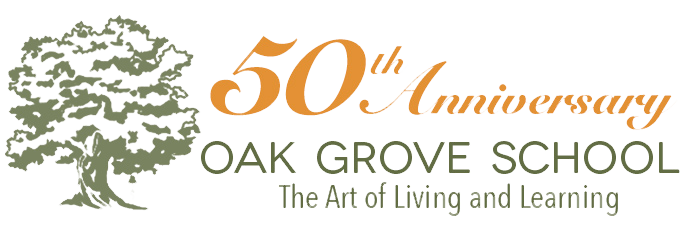Oak Grove’s Accreditation
Today, we welcome five administrators from other California independent schools, including Lick-Wilmerding High School, Presidio Knolls School, Westridge School for Girls, Village Christian School, and Trinity School. They are our Accreditation Visiting Committee, and they will be with us through Wednesday.
Oak Grove has a dual accreditation through the Western Association of Schools and Colleges (WASC) as well as the California Association of Independent Schools (CAIS). If you don’t already know how this works, an independent school, through an in-depth review process, is granted one-, three-, or seven-year accreditation status. The process begins with a 12-month self-study, which is broken into 16 chapters covering all aspects of the school, including curriculum, climate, finances, physical plant, human resources, administration, safety, and so much more.
This is an amazing opportunity. This process assists us in reviewing what we say we do against what we actually do. Talk about mirrors! Even though seven years is the longest accreditation stretch offered through WASC/CAIS, Oak Grove is currently in our eighth year. We were supposed to be reviewed last year. However, on a glorious Saturday morning in 2018, I was sitting at my kitchen island replying to emails, and in popped a message from CAIS Accreditation Director, Mariana Robles. She explained that there were twice as many schools up for accreditation than usual and, since Oak Grove was in good standing, questioned if we would be open to pushing our self-study one more year.
This was the quickest email I have ever written; I couldn’t reply fast enough! Within a couple of moments, Mariana replied back with, “Wow! That was a quick response! Thank you, Jodi, for being willing to help.” Ha!
Beginning in January 2019, we began working intensely on our self-study, which included 93 committee members and a 12-month timeline. The self-study itself included 85 questions to be answered, along with oodles of “evidence” like financial data, enrollment and retention numbers, proof of best practices, curriculum scope and sequence, parent handbook, emergency procedures, teacher guidelines, on and on.
One of the questions in the Education Program section asks, “Taking into account the future world in which the school anticipates that its students will be living, describe how the curriculum is informed by that vision.” This one is particularly interesting to me. Here’s why. Research strongly suggests that current employers and world leaders are looking for people who can solve complex problems with an ability to negotiate on a global level, often through conflicting cultural, social, and political ideology. People must have the ability to synthesize discordant ideas because the world’s interdependence is rapidly narrowing and these are skills that cannot be performed by a computer.
Oak Grove’s academic program emphasizes critical and creative thinking to solve complex problems; the ability to collaborate with others, which requires clear communication, flexibility, cultural sensitivity, and deep listening skills. Throughout Oak Grove’s curricular and co-curricular programs, which are outlined in the Arts of Living and Learning, we incorporate a climate of inquiry, self-reflection, understanding through relationship, aesthetics, attention, metacognition, citizenship, and environmental stewardship.
The truth is, however, that Oak Grove is not focused on simply preparing our students for the world they will someday inhabit. We are honoring them as they are today in the world in which they live now. Yet perhaps most importantly, we are preparing our students to change that world for the better – not just for humans, but for all the world’s inhabitants. We already see this with our alums, like the ones highlighted in our many publications and the ones who are now Oak Grove parents and members of the faculty.
Krishnamurti once said, “A school, through its students, should bring a blessing to the world.” This is a radical idea, and at its core, Oak Grove is a radical school. Aristotle talks about living a eudaimonic life, which is living a life of virtue and excellence, living our highest self. This might be similar to what Krishnamurti referred to as “flowering in goodness.”
What is most significant about this concept isn’t the benefit to oneself, but how living this way is a benefit to others and therefore initiates an endless cycle of reciprocity. In many ways, in living life in this way, one is bringing a blessing to the world and therefore receiving this blessing.
Let’s enjoy this opportunity to share the vibrant learning of both student and teacher here at Oak Grove against the backdrop of beauty and serenity on our campus.
Jodi Grass
Head of School









